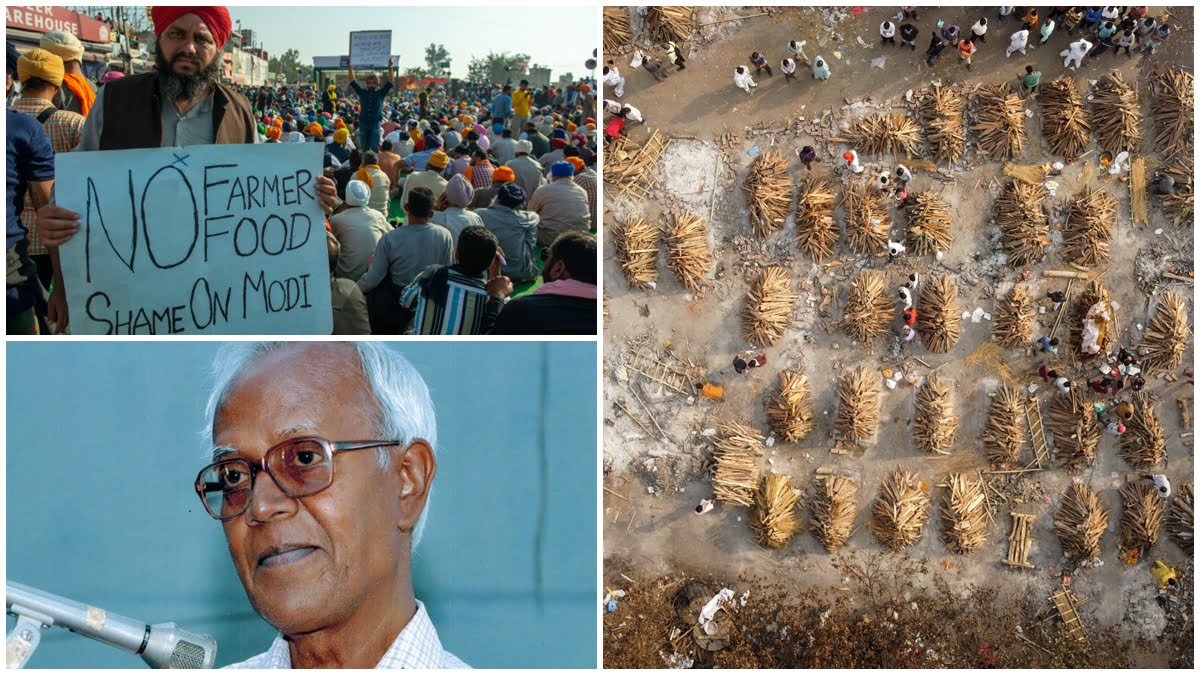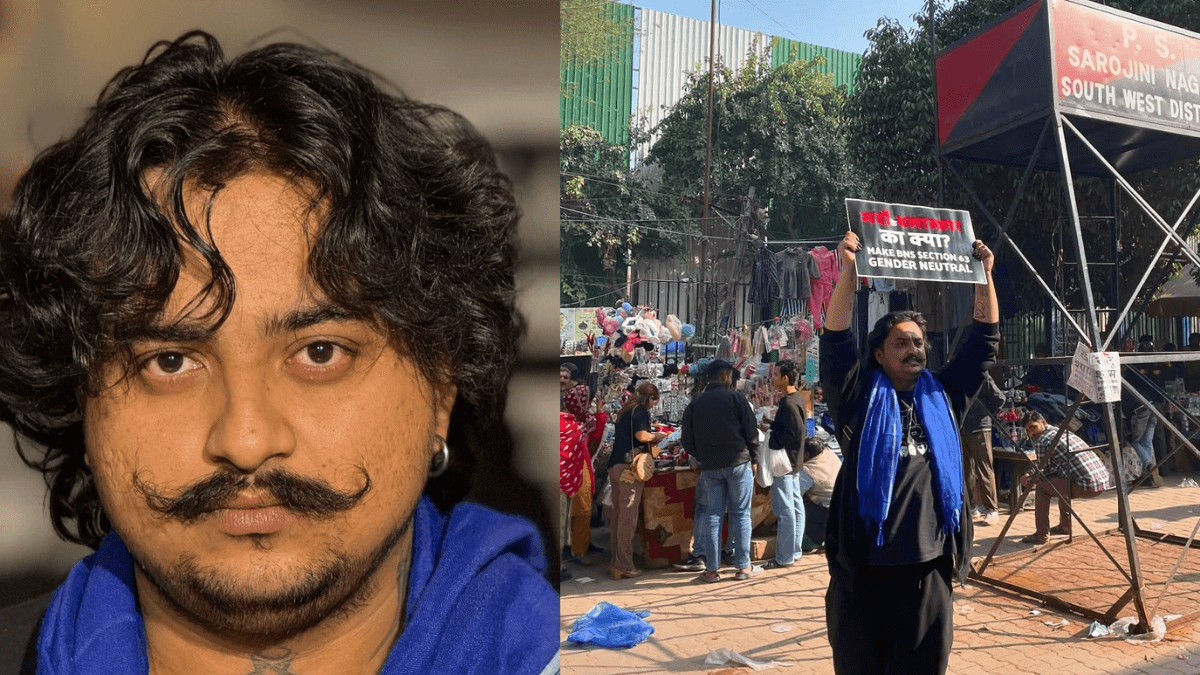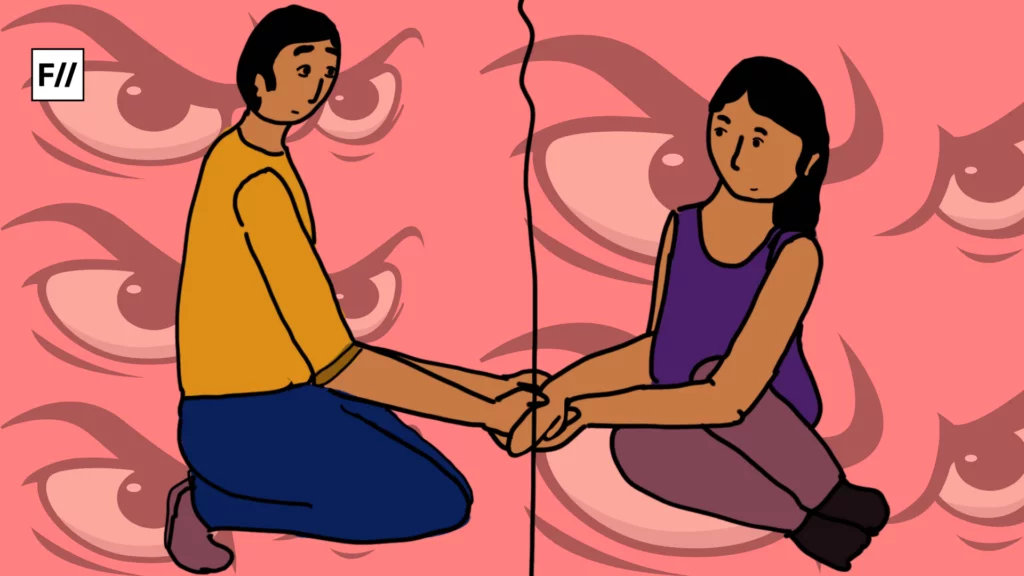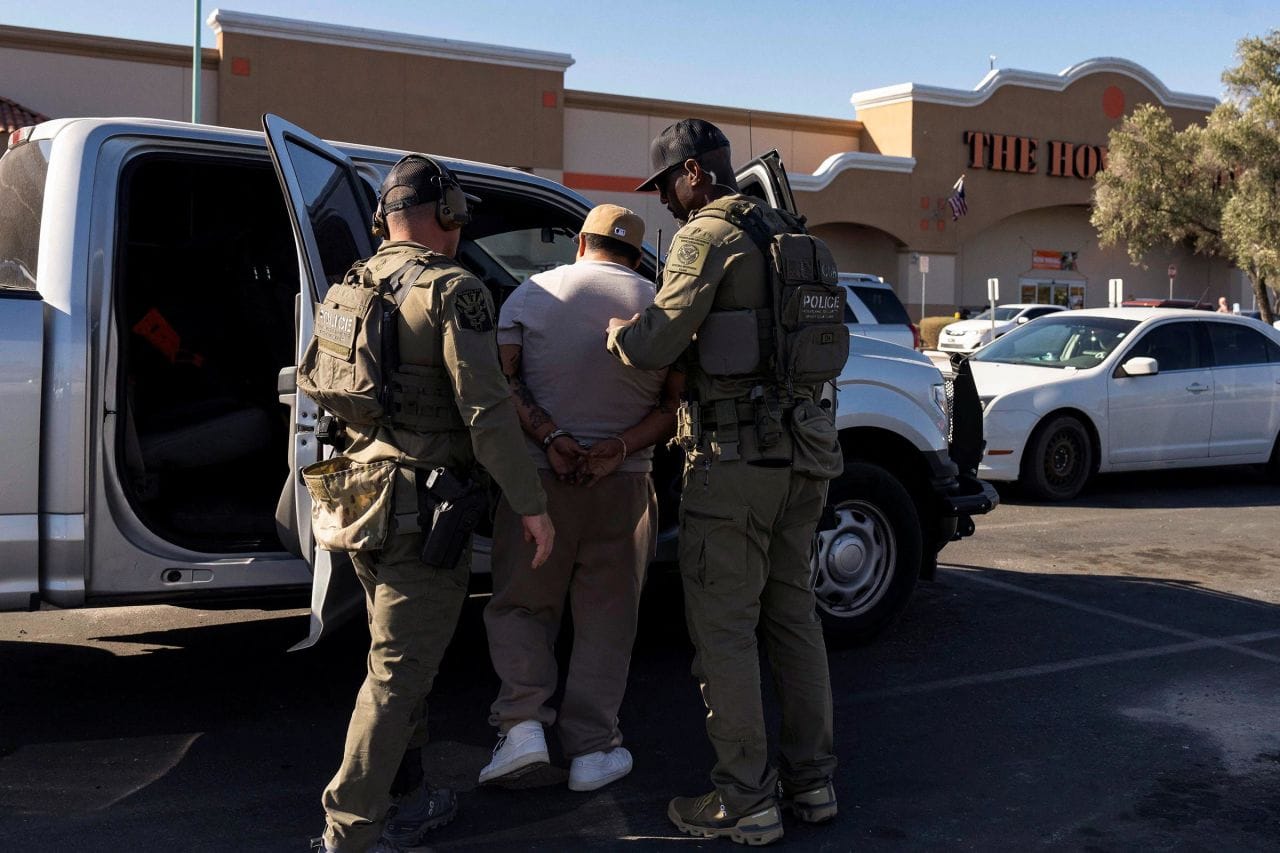India is about to celebrate Azadi Ka Amrit Mahotsav which is a 75-week long celebrations to commemorate 75 years of the country’s independence. Some of us might wonder if it is the right time to scale back or cancel Independence day festivities to empathise with the people who are mourning the loss of their loved ones as well as those who are struggling against the oppressive fascist regime to protect India’s democratic sole today.
How can a nation of a hundred and forty crore people turn away from all that misery to chant patriotic songs, hoist the tricolour flag or watch the independence day parade at the Wagah-Attari border when people around us are suffering? Here are five questions we must ask on independence day this year:
How can a nation of a hundred and forty crore people turn away from all that misery to chant patriotic songs, hoist the tricolour flag or watch the independence day parade at the Wagah-Attari border when people around us are suffering?
Have we forgotten the migrant crisis?
On 23rd March 2020, a nation wide lockdown was imposed by the Central government to contain the spread of Covid-19 with less than four hours notice. Due to the shutdown of economic activities, migrant workers who used to work in unorganised sectors like construction activities, manufacturing enterprise and others who have their own corner shops or stalls had no option but to turn towards their villages and homes without any assistance or help from local or central administration. They were forced to take private buses for their journey back home that charged them exorbitant amounts. Those who couldn’t afford had to cover this arduous journey of thousands of kilometres by walking. Be it a pandemic or a national emergency, a citizen should not be stripped off the fundamental rights that the constitution has guaranteed them.
But that is exactly what happened when the Modi government announced an unprecedented and poorly planned lockdown that cost the lives of India’s most vulnerable in road accidents, on railways tracks and due to starvation.
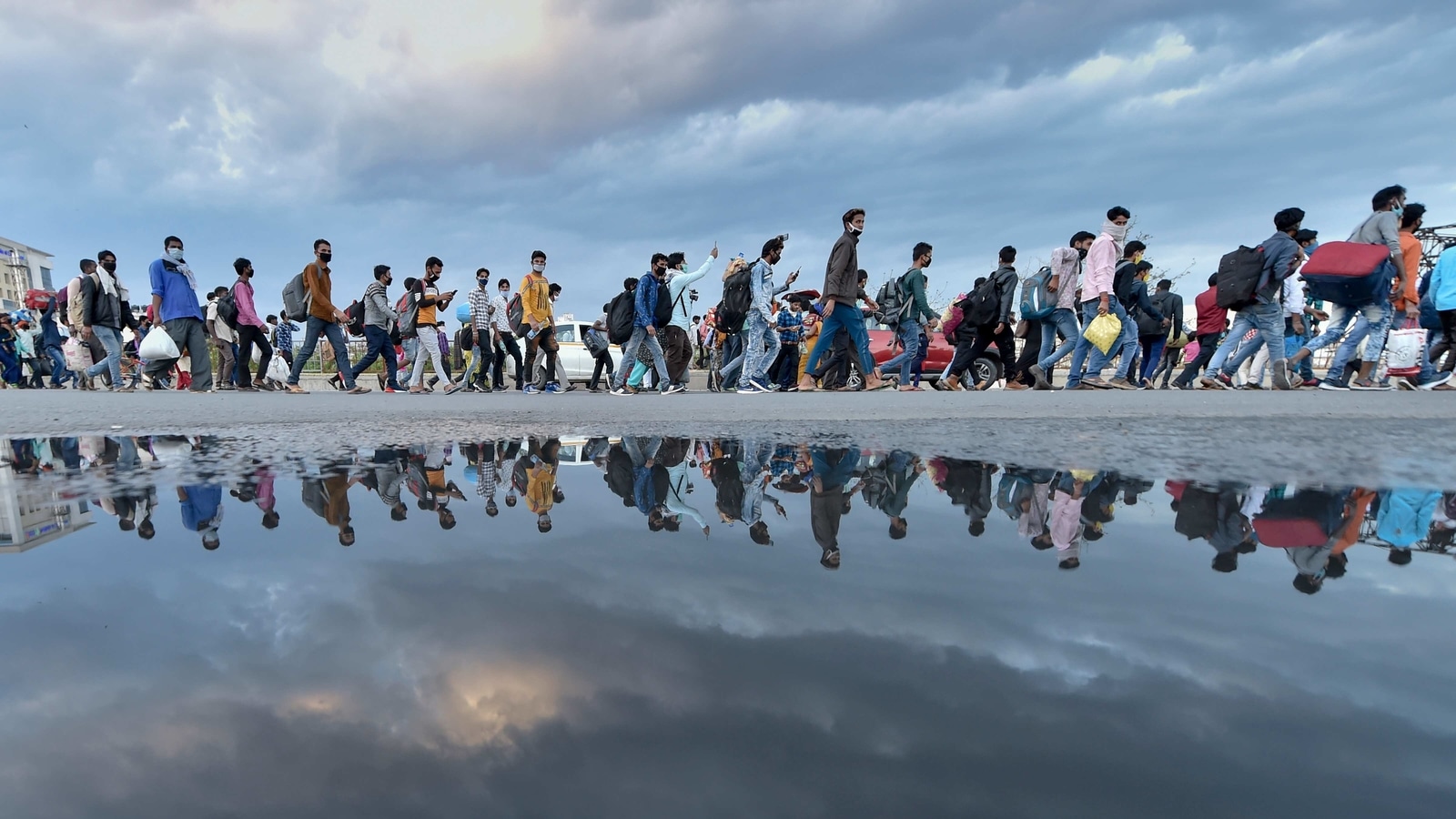
Having no data to measure the unimaginable horror faced by migrant workers proves the point that India’s economic success is shared by few & falsely represented over a period of time since Independence.
When will our farmers’ demands be met?
In 2020 Global Hunger Index survey, India ranks 94th out of 107 countries surveyed and with a GHI score of 27.2. India ranks the lowest among its other South Asian neighbours. The report terms the level of hunger in India as serious. The country’s child stunting rate at 34.7 percent was the highest in South Asia, and it also had the highest rate of wasting among the countries surveyed. India needed major reforms to improve logistics, ration distribution, storage facility and midday meal schemes to battle widespread hunger mostly in children and pregnant mothers.
The government came up with three farm bills without any consultation with the stakeholders and opposition parties to benefit private entities and large corporates we do not even need to take the name of. Experts have pointed out that if these draconian legislations get passed, they will facilitate an easy passage for crony capitalists to enter into an exploitative contract with farmers without government intervention. Corporates will fill their coffers by purchasing agri-goods at a cheap price (much below MSP) thus impacting farmers’ profits gravely and during peak season they could create an artificial shortage by hoarding, that will disrupt the supply chain & the resultant higher price will burn a hole in consumers pocket.

Due to these reasons, protests against farm bills have been going on for more than eight months, around 250 farmers lost their lives during protests and countless were injured in police brutality. Protestors are being arrested under unconstitutional colonial era laws as the world is watching the Indian government make a mockery of the age-old democratic tradition of discussion, debate and descent.
Also read: Studies Indicate Mothers-To-Be Are Facing A Grim Future In Post-COVID India
Until when are we going to look away from Kashmir’s suffering?
The life of Kashmiris who are living in the world’s largest militarised zone became worse when the central government revoked the special constitutional status of the state of Jammu and Kashmir under article 370 and 35A of India’s Constitution that allowed the State with certain special rights and administrative autonomy. Civil liberties like freedom of movement, right to internet and protests remain curtailed to muffle Kashmiri voices from speaking up against state oppression. There’s been disproportionate use of force against its own people in the valley. Judiciary complacency and complicity has let down the people of Kashmir and thousands of habeas corpus petitions remain unheard in J&K High Court by June 2020. Apart from constituting a 5-judges bench to hear the matter, the Supreme Court has failed to deliver justice & further added to the people’s misery.
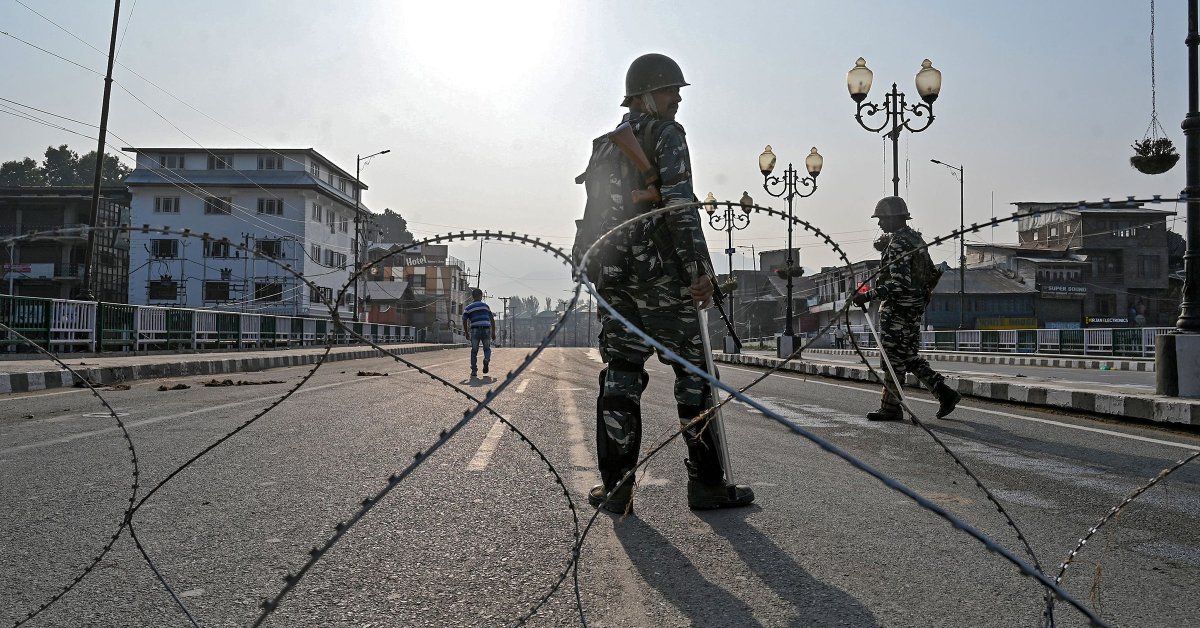
Where is the accountability for the mishandling of Covid-19 & access deaths?
There was a feeling of jubilation and relief before the incoming second wave. The government had announced its victory over the deadly virus. Little did they know that India did flattened the curve but to the wrong axis. When Indians were gasping for oxygen and cases were rising sharply at record levels, the election commission enabled huge political rallies to be carried out for West Bengal state elections.
Despite warnings to call off, around 9.1 million people from across different states participated in the Kumbh mela at Haridwar and the event became a superspreader, just like Bengal elections. As per the reports India’s COVID-19 fatalities number might be close to 4 million, which is much higher than official figure of 4 lakhs. To hide the access deaths in UP, tin walls were put up around cemeteries, so that the true number of cremations and burials is not counted. Meanwhile, Gujarat constituted a death audit committee to make sure that any deaths of persons with comorbidities list the co-morbidity as cause, even if they died from COVID. Many lives could have been saved if the government had placed the order of vaccines before the resurgence of the second wave, instead we witnessed the Centre’s incompetence and callous attitude as scores of dead bodies were found floating or dumped on the banks of the river amid alarming shortage of hospital beds, oxygen supplies and essential medicines.
Also read: Internal Displacement: Our Developmental Politics Has No Concern For The Marginalised
Are we witnessing the deaths of reason and dissent in India?
Father Stan Swamy, who had dedicated his life in the service of Dalits and Adivasis was charged under UAPA for allegedly inciting violence in Bhima Koregaon, died last month. Meanwhile, a US forensic firm revealed that one activist’s laptop was compromised and the evidence of plotting to assassinate the prime minister and inciting violence were artificially planted in the said device. This is supported by the fact that in September 2018, a multi-member fact finding committee headed by the Deputy Mayor of Pune reported Bhima Koregaon violence was pre-planned and orchestrated by right-wing activists Sambhaji Bhide and Milind Ekbote.
The suspects of this protest are still languishing in jail under concocted charges and one of them was Father Stan Swamy. It shows the current system’s lack of empathy that an octogenarian and a patient of Parkinson’s with incrementally deteriorating health was denied a straw and sipper he had requested to help ease his intake of food and fluids.
On July 5,1852 Frederick Douglass the foremost abolitionist of his time and early champion of women’s rights was asked to deliver an orientation on “What to the slave is the fourth of July” at an Independence day celebration in Rochester, New York. He stated “To him, your celebration is a sham; your boasted liberty, an unholy license; your national greatness, swelling vanity; your sounds of rejoicing are empty and heartless; your denunciation of tyrants, brass fronted impudence; your shouts of liberty and equality, hollow mockery; your prayers and hymns, your sermons and thanksgivings, with all your religious parade and solemnity, are, to Him, mere bombast, fraud, deception, impiety, and hypocrisy. This Fourth of July is yours, not mine, You may rejoice, I must mourn.” The dark past of America linked to slave trade & persecution of black still haunts many, some ask “what is there to celebrate when Systemic racism & crime against people of color has become part of American experience?”
About the author(s)
Ajit Singh is a student who is currently pursuing his Bachelor’s degree in Education. He likes to participate in discussions on Politics, Climate Change, Economy & IR. He spends his leisure time reading & contemplating quite a bit of Kierkegaard, Camus, Dostoyevsky & other Existentialists. He’s not on socials to protect his mental health but the author can be contacted at ajitsinghmarch6@gmail.com.
